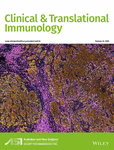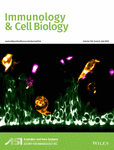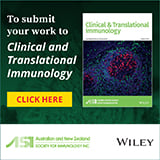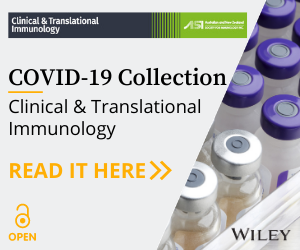Journal list menu
Export Citations
Download PDFs
Original Article
Mucosal-associated invariant T cells correlate with myocardial ischaemia and remodelling in coronary artery disease
- First Published: 24 March 2025
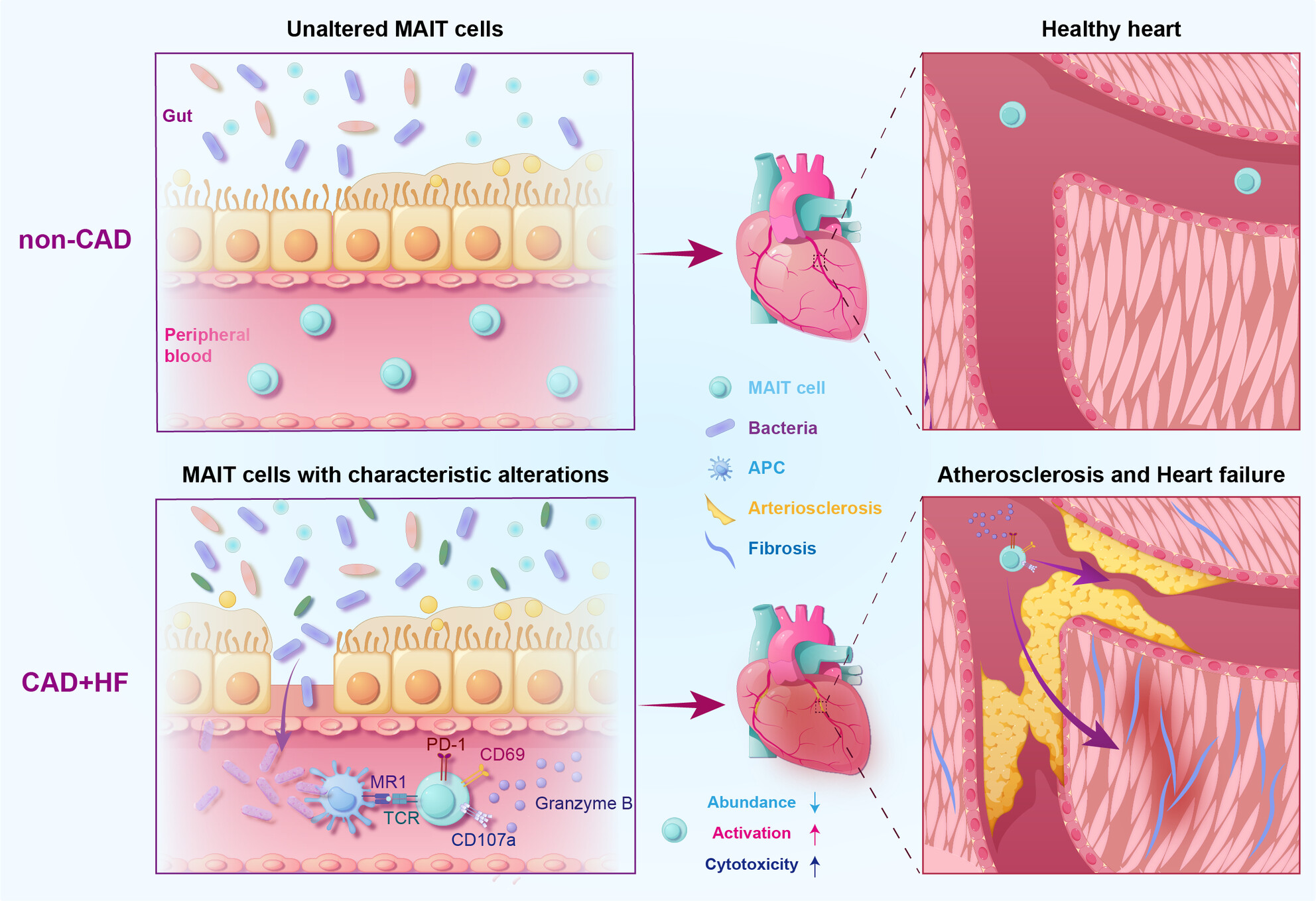
In this study, we found that as coronary artery disease (CAD) progresses, circulating mucosal-associated invariant T (MAIT) cells undergo a reduction in number, accompanied by increased activation and cytotoxicity. These alterations are closely associated with myocardial ischaemia, remodelling, and fibrosis in CAD patients with heart failure, potentially driven by gut microbial translocation. Our findings suggest a novel approach for monitoring and targeting disease progression.
Decreased levels and function of dendritic cells in blood and airways predict COVID-19 severity
- First Published: 03 March 2025

By analysing 147 COVID-19 patients with different level of disease severity using flow cytometry, functional assays and proteomics, we found that severe COVID-19 is marked by a significant decrease in DCs in both the blood and airways. In particular, low frequencies of a specific DC subset (cDC2) early in infection were associated with a higher risk of severe disease outcome, and that DC depletion lasted longer in these cases, but by contrast, severe disease was associated with recruitment of activated monocytes to the lower airways. Functional and proteomic data supported a picture where migration of monocytes and dendritic cells play an important part in disease pathogenesis, with changes normalising during convalescence.
Distinct MAIT cell phenotypes associated with sepsis clinical outcome in emergency department patients
- First Published: 04 March 2025
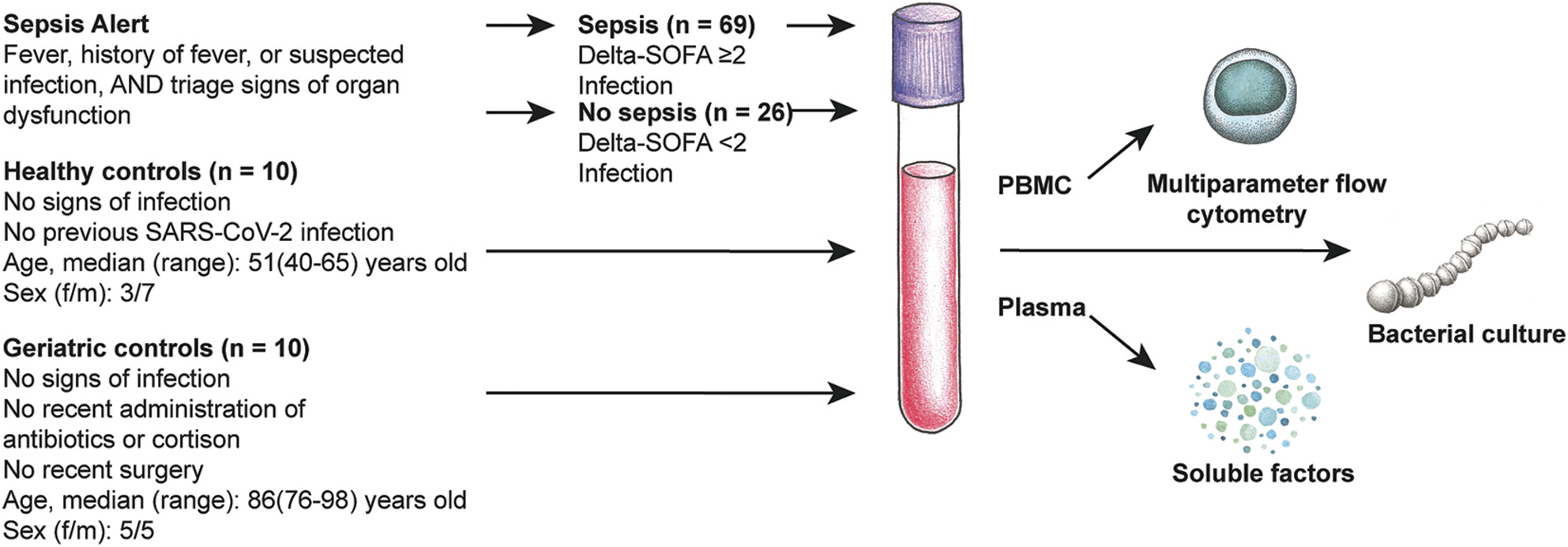
In this study, mucosal-associated invariant T (MAIT) cell characteristics were evaluated in blood from patients who triggered a clinical sepsis alert at the emergency department. High-dimensional phenotyping revealed distinct MAIT cell activation profiles between sepsis and non-sepsis groups. In sepsis patients, hierarchical clustering identified three clinical endotypes with different infection focuses, severity and aetiology, which are of interest for early patient identification and prognostication.
γδ T cell characterisation in the long term after haematopoietic stem cell transplantation and its impact on CMV control and cGVHD severity
- First Published: 07 March 2025
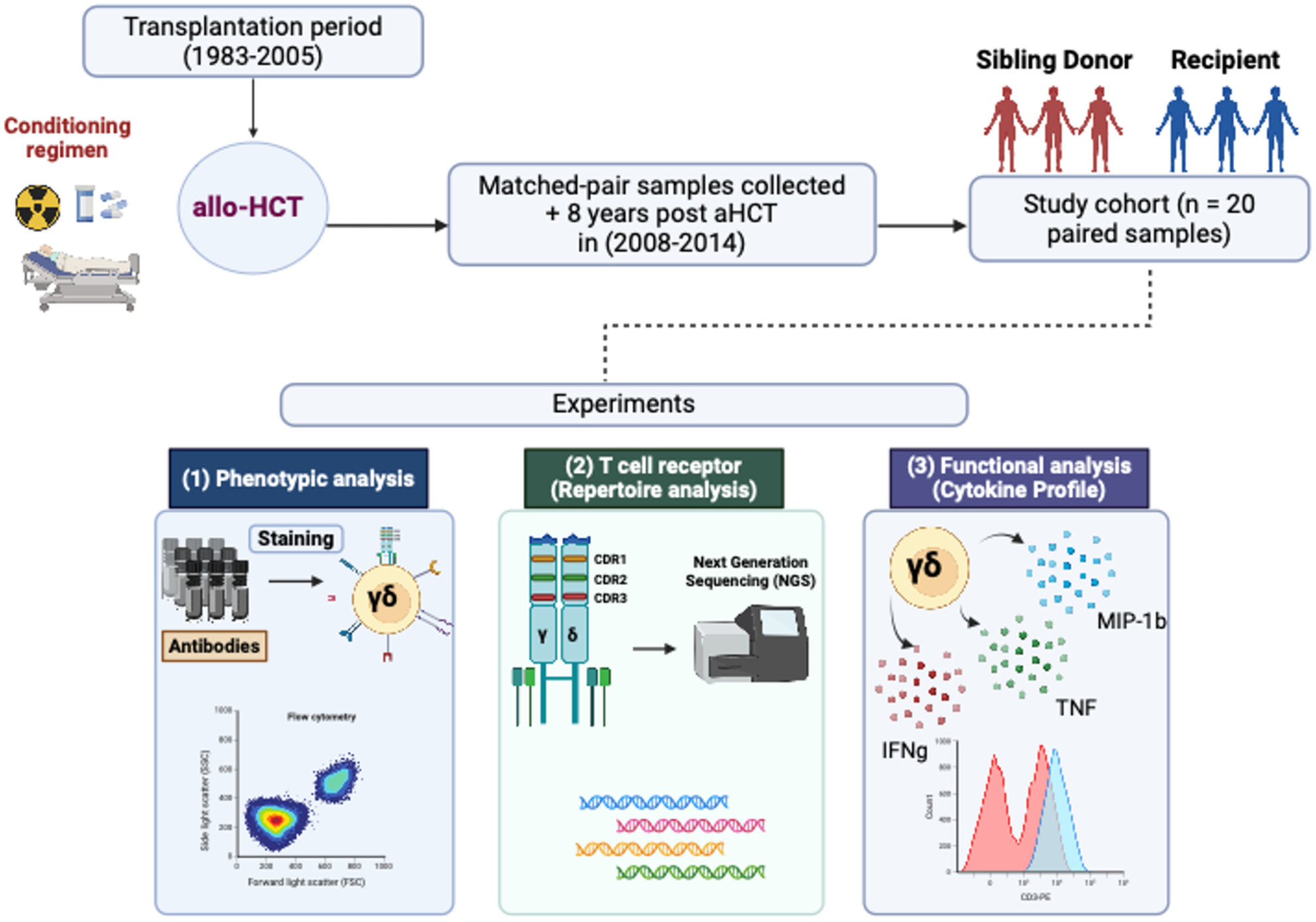
In this study, we found that long-term γδ T cell reconstitution post allogeneic haematopoietic stem transplantation (aHCT) reached a homeostatic state with a normalised TRG CDR3 repertoire. Importantly, γδ T cells remained functional and provided a long-term control on cytomegalovirus (CMV) after aHCT. Additionally, some recipients exhibited overrepresented clonotypes and increased HLA-DR expression on Vδ1 T cells, which are associated with severe chronic graft-versus-host disease (cGVHD).




